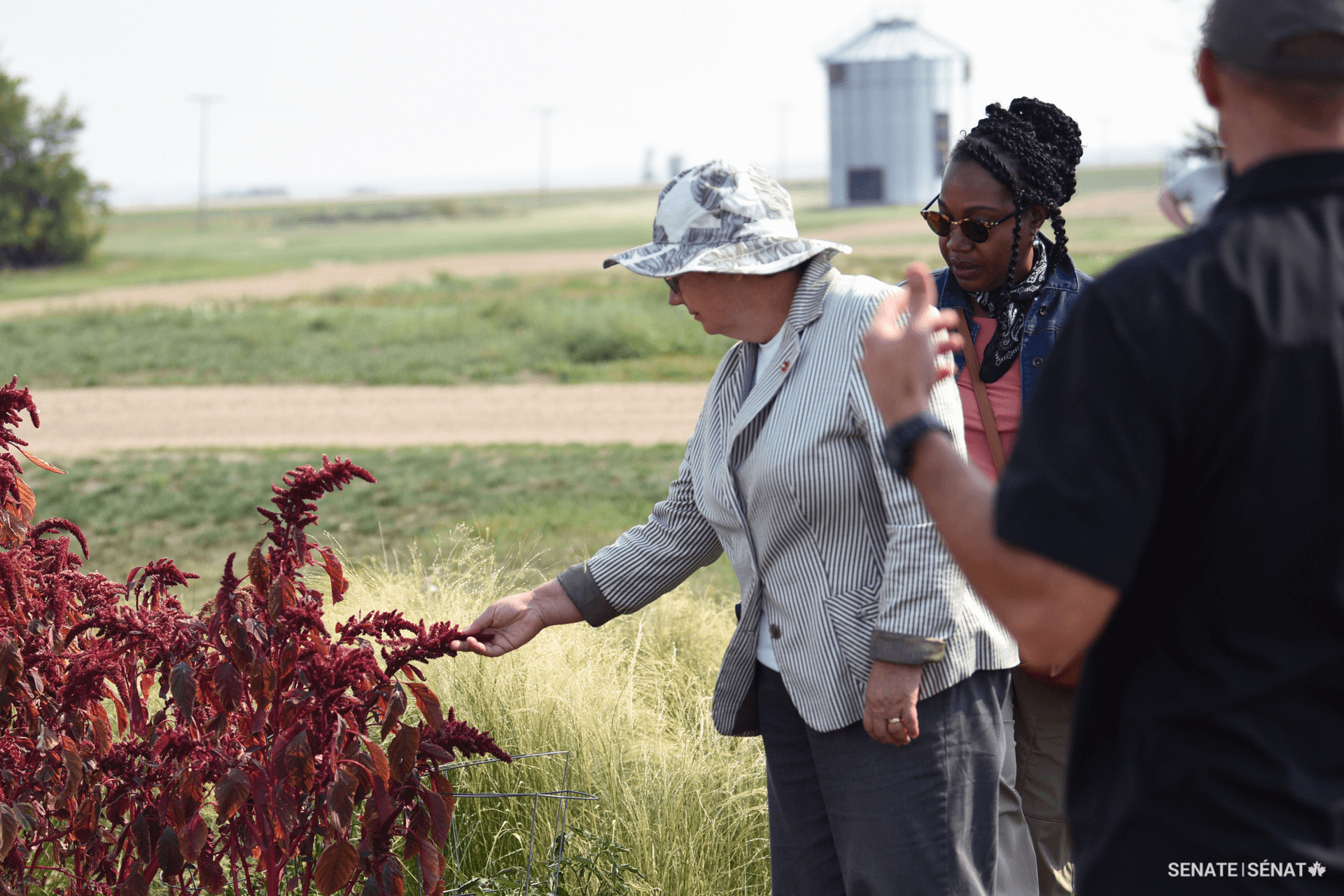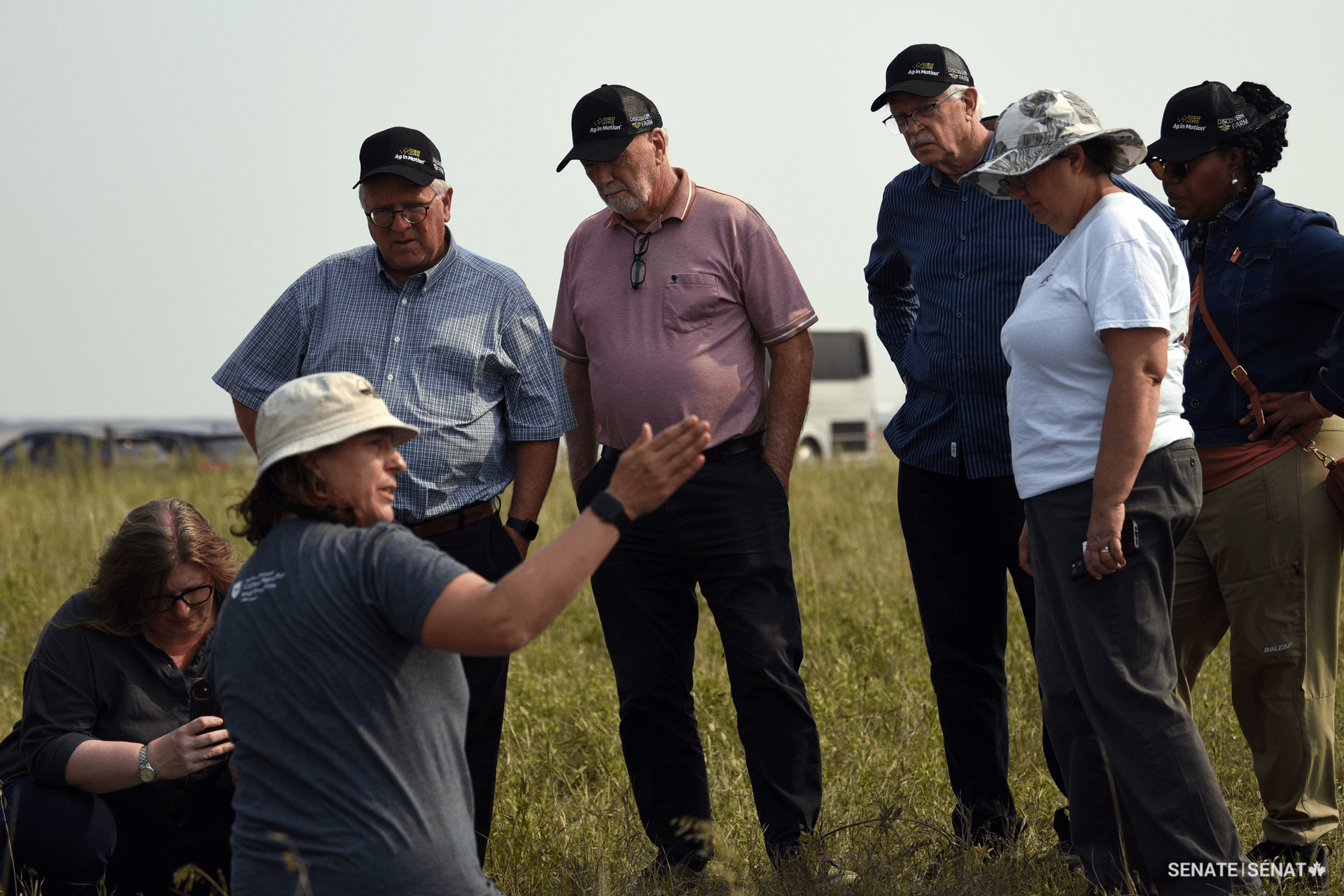
Canadian Senators studying national soil health visit Alberta
A group of Canadian senators who recently visited Alberta on a fact-finding mission are attempting to flesh out the overall state of the country’s soil health.
Healthy soil is of course vital to growing food, they note, as well as purifying water, cleaning the air and sustaining life.
Senators Paula Simons (Alberta), Rob Black (Ontario), Sharon Burey (Ontario) and Mobina Jaffer (British Columbia) are members of the Senate Committee on Agriculture and Forestry, and they together toured farms and research centres in Alberta, including in Olds, south of Red Deer.
Tours allowed a chance to speak with producers and researchers about how the federal government can help preserve the resource that is this nation’s soil, and it’s all for a study that’s the first-of-its-kind since 1984.




